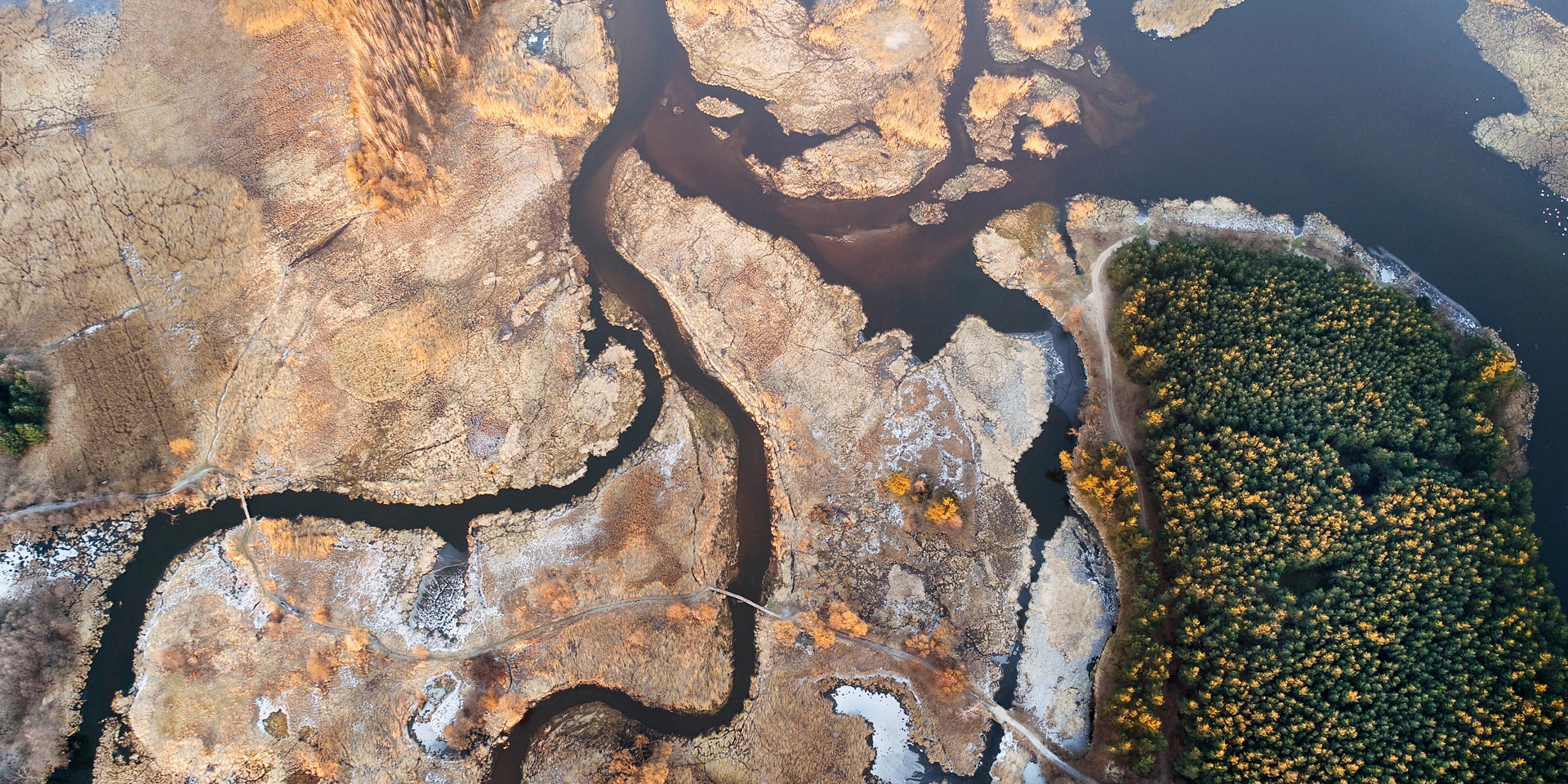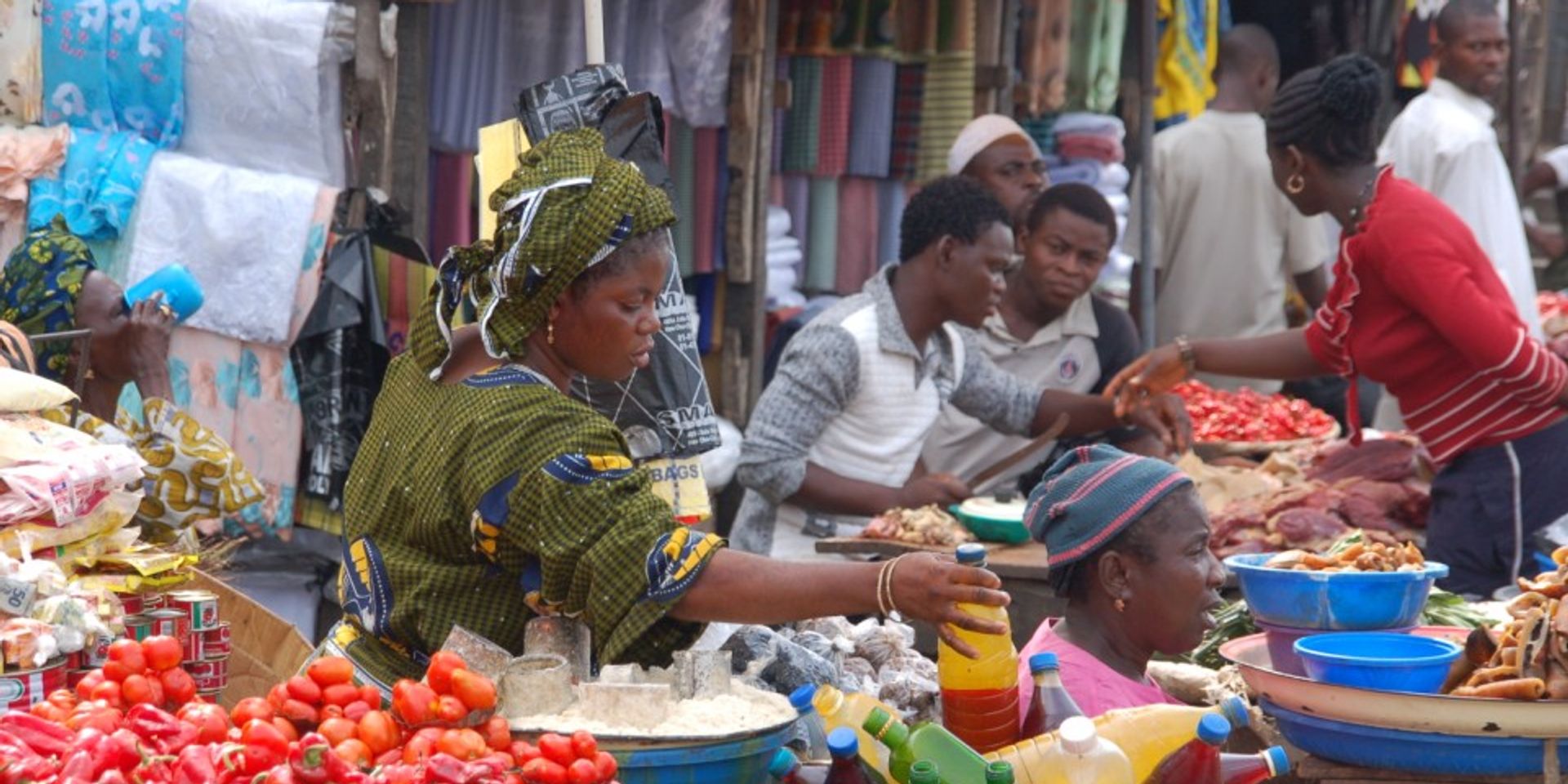Switzerland participates in UN 2023 Water Conference
A Swiss delegation will participate in the United Nations Water Conference from 22 to 24 March. It will emphasise the importance of the transboundary management of this vital resource, which is at the heart of the country's Blue Peace initiatives beyond its borders. The latest news on Switzerland's participation in the UN 2023 Water Conference.
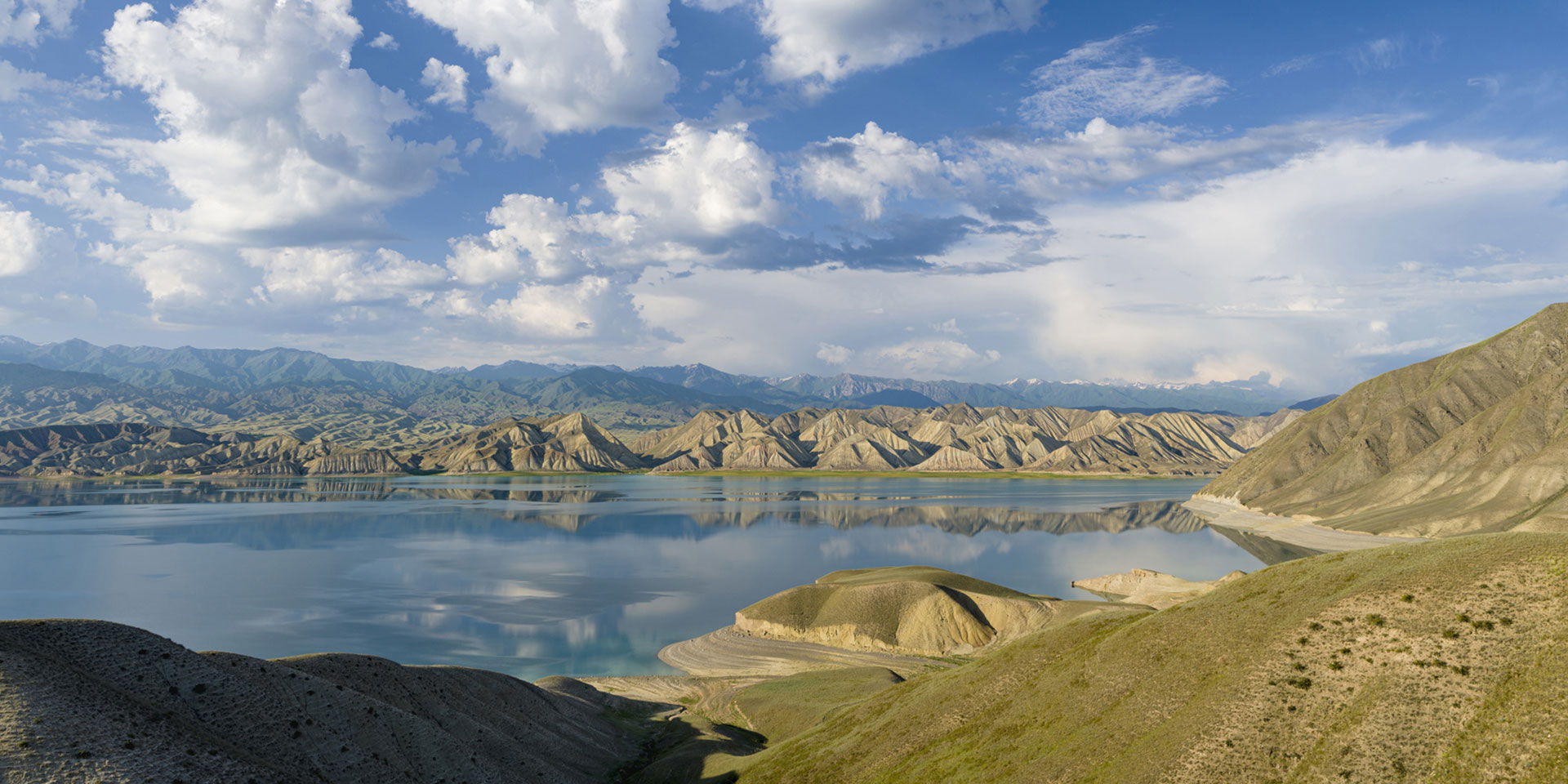
Switzerland is working to improve shared water resources as part of its Blue Peace initiative, particularly in Central Asia. © Keystone
23.03.2023
Switzerland co-chairs interactive dialogue on transboundary water management
Five interactive dialogues focusing on water for health, water for sustainable development, water for climate, resilience and environment, water for cooperation and a water action decade were a highlight of the UN 2023 Water Conference. Switzerland co-chaired the fourth interactive dialogue with Senegal on 23 march. This focused on water for cooperation, including a discussion on cross-sectoral water management. "We can address the water challenges we face and secure our children's future prosperity by entering into agreements with our neighbours, setting up shared institutions and bringing all stakeholders to the table," stressed Christian Frutiger, head of the Swiss delegation and assistant director general of the Swiss Agency for Development and Cooperation.
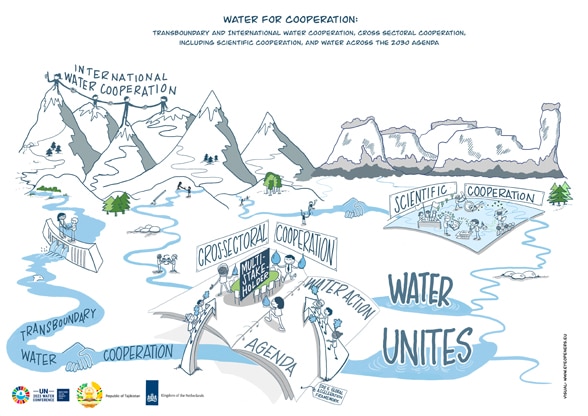
Transboundary water management is particularly important to Switzerland, which shares six rivers and four lakes with its neighbours and has a wealth of water management expertise. Transboundary water management is also a key component of the work undertaken by Blue Peace (see article below). Switzerland's Blue Peace initiative, launched by the Federal Department of Foreign Affairs in 2010, promotes water diplomacy in combination with development cooperation.
Speech by Christian Frutiger at the interactive dialogue on transboundary water management (fr)
Switzerland's speech at the plenary session
Christian Frutiger, assistant director at the Swiss Agency for Development and Cooperation (SDC) and head of the Thematic Cooperation Division, spoke on 23 march on behalf of Switzerland in the plenary session at the UN 2023 Water Conference. "Switzerland calls for the UN to prioritise water on its agenda. Water is a vital, finite and irreplaceable resource, with water scarcity one of the greatest challenges we face in the 21st century", said Christian Frutiger.
As a result of the conference, Switzerland expects that a Special Envoy for Water will be appointed and that water issues will become a priority for the UN over the long term. Water is a vital resource which plays a fundamental role in all aspects of development, peace and prosperity.
Switzerland co-hosts humanitarian action side event
'Leaving no one behind: advancing the Sustainable Development Goals in humanitarian settings'. Switzerland chose this topic for a side event it is co-hosting on 23 March with Senegal, Iraq, UNICEF and the ICRC at the UN 2023 Water Conference.
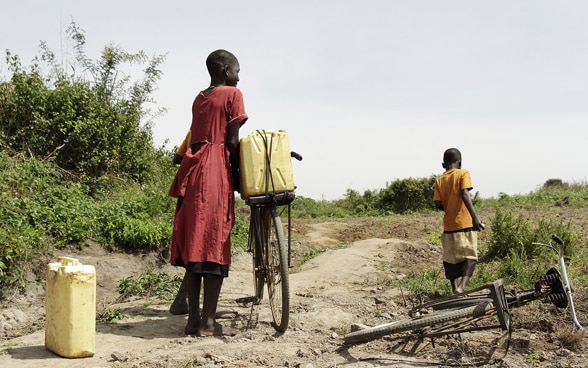
Discussions focused on respecting international humanitarian law in armed conflict and the need for a renewed commitment to protecting basic services, including water supply. Some of the points raised echoed the concerns at the informal UN Security Council meeting on 22 March (see below).
The event highlighted that displaced people, including refugees and internally displaced persons, have a fundamental right to access water, sanitation and hygiene (WASH) and that partnerships and coordination are needed between the various humanitarian, development and state actors on the ground. Meeting both these requirements are key to jointly delivering satisfactory outcomes for crisis-hit communities.
22.03.2023 – Access to water must be guaranteed at all times, even in times of war
At the initiative of Switzerland and Mozambique – both elected members of the Council – the UN Security Council held an informal meeting on 22 March on the occasion of the World Water Day to discuss the protection of access to water and sanitation infrastructure in armed conflicts. This protection is a central pillar for the protection of civilians in armed conflicts.
"Water is essential to all life on earth and access to water is a fundamental right. It must be guaranteed at all times, including in times of war", stressed Christian Frutiger, Deputy Director-General and Head of the SDC's Thematic Cooperation Division, representing Federal Councillor Cassis, at the Security Council. Despite existing obligations under international humanitarian law, which is also reflected in several Security Council resolutions, water facilities continue to be destroyed or damaged in armed conflicts.
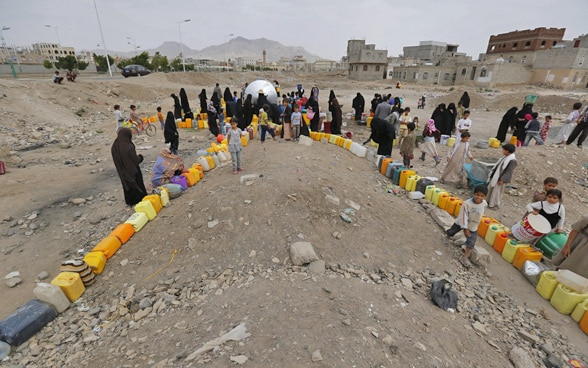
Today, some two billion people are at risk of water scarcity as a result of conflict. This not only results in a lack of water for people and agriculture, but also the spread of infectious diseases such as cholera due to poor hygiene. This is why Switzerland emphasised in the Council, that international humanitarian law must be respected and enforced everywhere and without fail. International humanitarian law fundamentally protects water infrastructure as a civilian object. It also prohibits attacking, destroying and rendering useless goods that are essential for the survival of the civilian population, such as drinking water supply facilities, water supplies and irrigation systems.
A functioning water infrastructure is also central to the consolidation of sustainable peace after hostilities. The absence of such structures prevents the resumption of economic and social activities in areas already severely affected by the war. This can result in a perpetuation of instability and a heightened risk that old tensions will flare up again. The meeting also highlighted the negative impact of climate change as an factor that further compounds the protection of water services and infrastructure in armed conflicts. This is why Switzerland also focused on the importance of prevention, reconstruction and the support of the international community for conflict-affected states and regions in its statement to the Security Council.
"The current challenges in terms of access, management and governance of water are manyfold and require multilateral solutions", Frutiger emphasised in New York. This is why Switzerland is committed to the permanent inclusion of this topic in the priorities of the UN.
Statement by Switzerland on the protection of access to water and sanitation in armed conflicts
Background informations
Switzerland wants to contribute to better cooperation on water
By 2050, 52% of the world's population will be living in regions where water has become scarce. This reality shows how tall the task is that the UN 2023 Water Conference participants – including Switzerland – will be tackling in New York from 22 to 24 March 2023.
Held for the second time after 46 years, this global water gathering will focus on four core themes serving as the topics of interactive dialogues between representatives of governments, the United Nations system, NGOs, civil society, the private sector and the scientific community. These themes – Water for Health, Sustainable Development, Climate, and Cooperation – will be put on the Water Action Agenda to be compiled as the outcome of the Conference's three days of intense exchanges and discussions. UN Secretary-General Antonio Guterres' expectations here are clear: "The Conference must result in a bold Water Action Agenda."
A series of interviews
To learn more about the swiss Blue Peace initiative:
Video interview with Rukan Manaz – Blue Peace finance
Video interview with Lisa Gampp – Blue Peace Central Asia
Video interview with Prince Hassan Bin Talal – Blue Peace Middle East
Towards cross-border dialogue
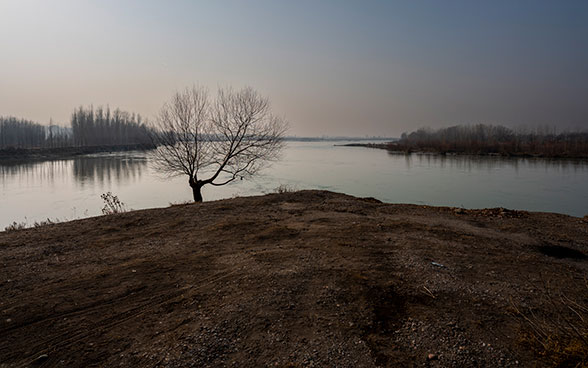
In Switzerland, we are mindful that access to and use of fresh water, an increasingly polluted, overused and disputed resource, is an ever greater potential source of conflict. The Swiss delegation wants this conference to catalyse efforts towards meeting the targets of Sustainable Development Goal 6: Ensure access to water and sanitation for all. To get there, Switzerland aims to make a significant contribution at this global water gathering, in particular as an experienced leader in cross-border water management issues. To this end, Switzerland will join Senegal in co-chairing the fourth, cooperation-focused interactive dialogue, which is to include joint and cross-sectoral water management issues.
Cross-border water management is at the heart of Blue Peace, an initiative launched by the Federal Department of Foreign Affairs in 2010 that interweaves water diplomacy and development cooperation. The Department has adopted this approach in order to turn the tide and help make this resource an instrument of peace and cooperation.
Making the most of Swiss experience
Such transformation can be achieved by working at the local, national, and regional levels to bring the countries concerned to the table so they can better manage their water resources and head off tensions between users. Here, Switzerland provides technical as well as legal and institutional solutions enabling regional policy dialogue traversing borders, sectors and generations in order to foster peace, stability and sustainable development.
Switzerland also draws on its extensive experience in peacefully managing water resources together with its neighbouring states; the country shares six rivers, including the Rhone and Rhine, and four lakes with its neighbours.
Focusing on the Middle East and Central Asia
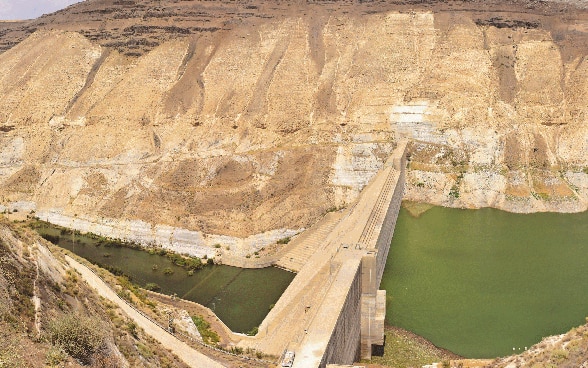
The Middle East and Central Asia lie at the heart of the Blue Peace initiative. These regions are prominent examples of the need for reliable, coordinated and harmonised cross-border water resources management. Blue Peace Middle East is the only regional platform that brings six countries to the table (Iraq, Jordan, Lebanon, Turkey, and Syria to some extent) to discuss water issues together. This is needed in a region where the flow rate of the rivers slowed by 50–90% between 1960 and 2010.
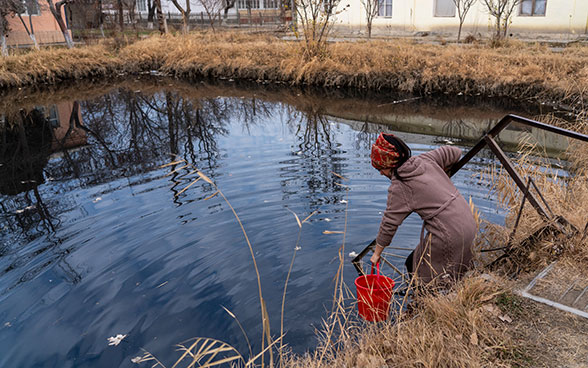
Cross-border water management needs are also great in Central Asia. There too, water is scarce. As Kazakhstan, Kyrgyzstan, Tajikistan, Turkmenistan and Uzbekistan share several water basins and infrastructure inherited from a previous era, growing water scarcity could aggravate existing tensions. Following two ministerial and parliamentary meetings facilitated by Switzerland, a high-level dialogue platform was formed. This platform enables exchanges on joint priorities such as hydrometric data sharing, natural disaster prevention, investment in joint infrastructure, and water analysis methods.

